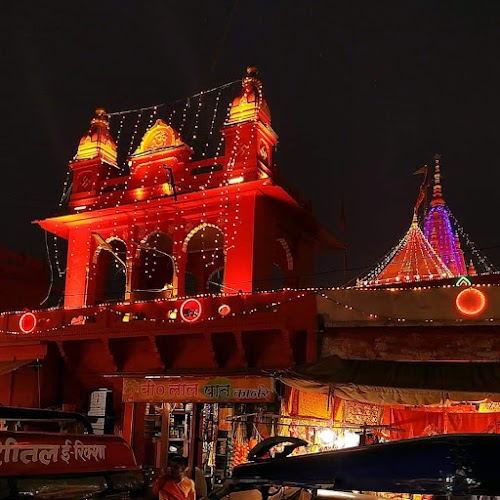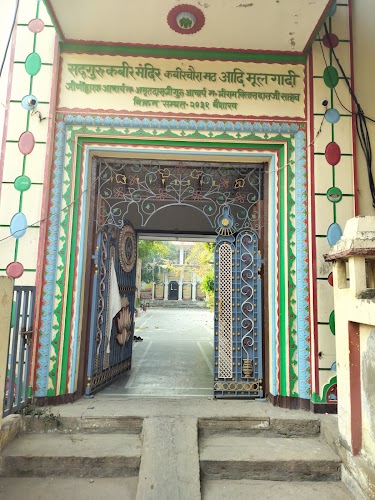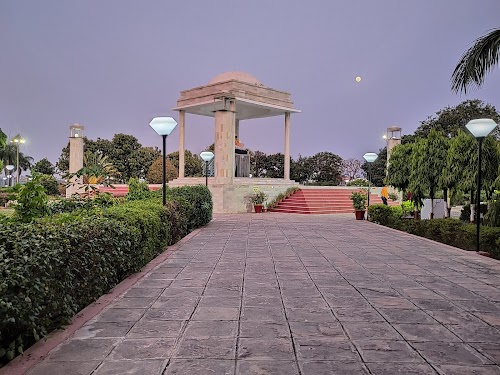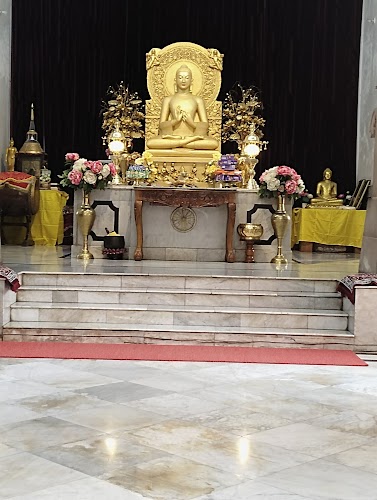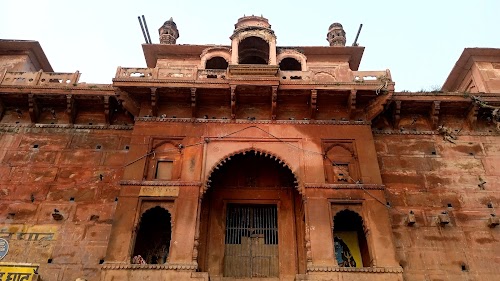Manikarnika Ghat
Varanasi, Uttar Pradesh, India
Welcome to Manikarnika Ghat in Varanasi, a super special place! It's like a doorway to forever, where Hindus believe getting cremated here helps break the cycle of rebirth. People also called it 'Mahasmasana' which means 'the great cremation ground'. It's been around for ages, and even grown-ups find it a bit mysterious!
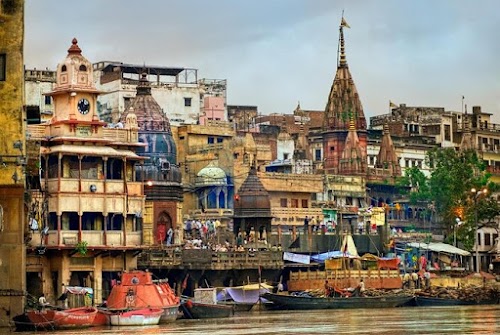
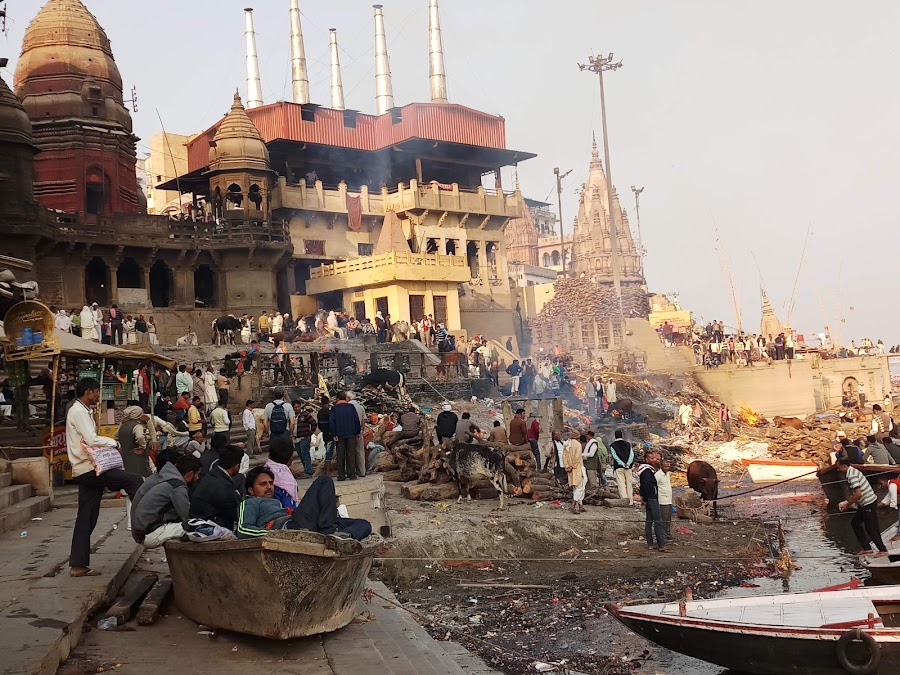
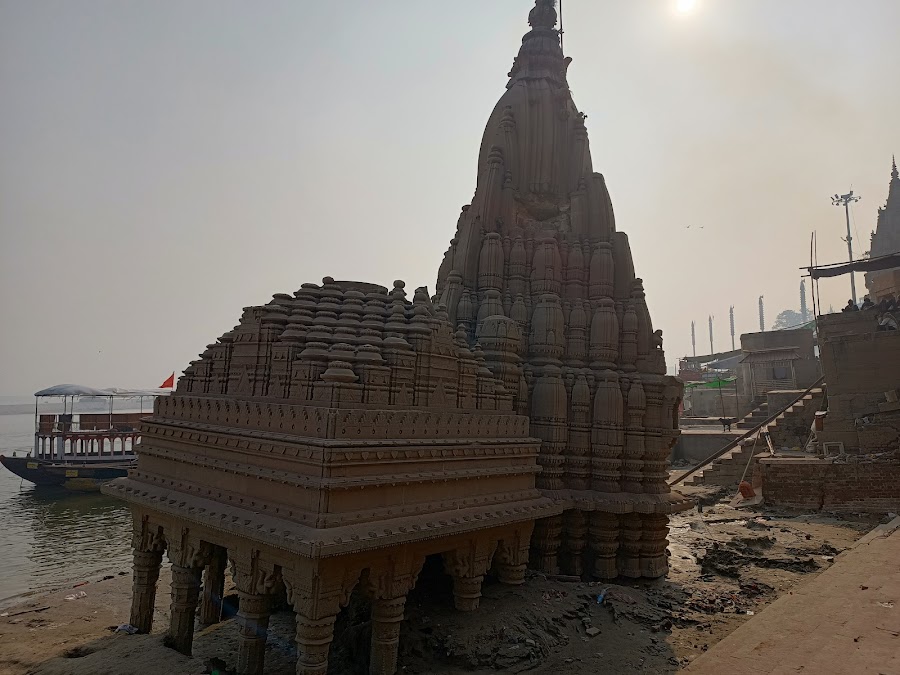
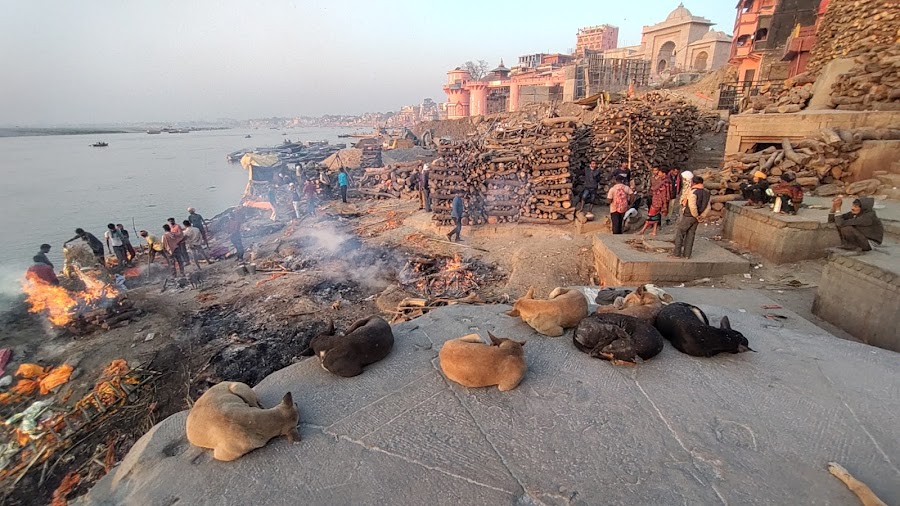
Interactive Map
Key Activities
Additional Places
Reviews
Map View
Top Activities in Manikarnika Ghat
- 1
Boat Ride On The Ganges
- 2
Explore Nearby Temples
- 3
Observe Hindu Rituals
- 4
Witness Cremation Ceremonies
Detailed Information
Best Time to Visit
October-to-March
When to visit place on the day
All-Day
Approximate expense
₹500 per person
History
Manikarnika Ghat's history is steeped in Hindu mythology and tradition. The name is derived from the legend of Goddess Parvati losing her earring (manikarnika) here. It's considered the primary cremation ghat in Varanasi, with cremations taking place 24/7 for centuries. The constant burning pyres and the rituals surrounding death are a stark reminder of the cycle of life and death. The ghat has been mentioned in ancient scriptures and has been a significant site for pilgrims for centuries. The ghat's historical significance and spiritual importance make it a unique and powerful place.
Recent Google Reviews
Manikarnika Ghat in Varanasi is one of the most revered sites. As one of the primary cremation ghats along the Ganges River, it holds deep spiritual significance in Hinduism. Visitors are drawn to this sacred place not only for its historical and religious importance but also for its raw, unfiltered representation of life and death. The ghat offers a stark yet enlightening view of the cycle of existence, embodying the acceptance of mortality and the pursuit of spiritual liberation. People appreciate its authenticity and the way it encapsulates the essence of Varanasi's unique blend of life, death, and rebirth.
Manikarnika Ghat in Varanasi is one of the most profound and spiritually significant places I have ever visited. As one of the main cremation sites in the city, it is said that around 400 people are cremated here daily. The continuous burning of funeral pyres creates an atmosphere that is both intense and humbling. Being here is a stark reminder of the impermanence of life. The significance of this place is not just in the rituals performed, but in the powerful way it confronts you with mortality. It’s believed that at Manikarnika, the ego of the deceased burns away along with their physical body, symbolizing the ultimate release from the cycle of life and death. The experience of witnessing the cremations can be overwhelming, but it is also deeply meditative, as it invites you to reflect on the transient nature of existence and the eternal journey of the soul. Manikarnika Ghat is not just a place, but a profound spiritual experience that leaves a lasting impact. The ghats are easy to reach from the roads and from other ghats as well. Beware of scammers and thieves along the ghats area.
Manikarnika Ghat is more than just a place; it’s a profound link to Hindu traditions, where life and death weave a timeless story. Manikarnika Ghat stands as a living testament to the rich tapestry of Hindu culture, where life and death coexist in a continuous cycle. As one navigates through the labyrinthine lanes of Varanasi and arrives at the ghat, the sacredness of the place leaves an indelible mark on the soul. Manikarnika Ghat is more than a cremation ghat. It is a symbol of the eternal dance of life and death on the banks of the holy Ganges. Manikarnika Ghat is one of Varanasi’s oldest ghats, and according to Hinduism’s holy scriptures, it has the highest status among all ghats. It is said that if a person is cremated here, he will achieve moksha right away (salvation).
Among India's most thought-provoking destinations, this 24-hour cremation ground is a must-visit for its profound impact on one's outlook on life. While the surroundings may be unrefined, the experience is transformative and humbling. Be prepared for a poignant encounter that will challenge your perceptions and leave a lasting impression. Despite the unpolished environment, the significance and intensity of this site make it an unforgettable experience.
